Invited speakers
Symposium sessions
Hear leading experts invited to present and discuss the latest discoveries and cutting-edge science at these symposia.
See up-to-date session dates and times in the schedule
- Advances in natural product biochemistry and biotechnology
- Cool and novel enzymes
- Education and professional development
- Lipid metabolism
- Maximizing Access Committee
- Membrane contact sites
- Microbial signaling, communication and metabolism
- Mitochondria, peroxisomes and chloroplast metabolism
- New frontiers in structural biology
- Redox and metals in biology
- RNA biology
- Signaling mechanisms in the nucleus
- ASBMB journals
Advances in natural product biochemistry and biotechnology
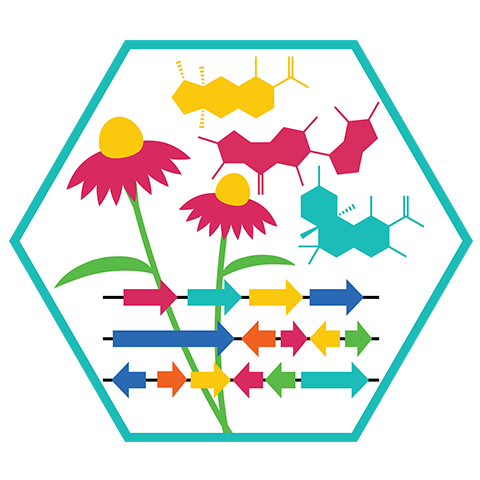
Organizers
Yi Tang, University of California, Los Angeles
Katherine Ryan, University of British Columbia
Name any newfangled biotechnology challenge and there’s a decent chance that Mother Nature already came up with a solution literally a billion years ago. Living organisms have a knack for producing useful molecules, and there’s a ridiculous amount we can learn from them to speed up chemical reactions, find new drugs and produce chemical products sustainably. Prepare to be wowed by the plethora of discoveries in natural products from genomes, microbiomes and animals shared at this symposium.
Natural products from higher eukaryotes and animals
Chair: Yi Tang
- Bradley Moore, University of California, San Diego
- Rebecca Butcher, University of Florida
- Emily Derbyshire, Duke University
- Jing-Ke Weng, Whitehead Institute for Biomedical Research
Natural products from microbiomes and symbionts
Chair: Katherine Ryan
- Jason Crawford, Yale University
- Bo Li, University of North Carolina at Chapel Hill
- Alessandra Eustaquio, University of Illinois Chicago
- Mohammad Seyedsayamdost, Princeton University
Biochemistry and biotechnology of natural product genome mining
Chair: Alessandra Eustaquiol
- Jamie Link, Princeton University
- Katherine Ryan, University of British Columbia
- Gerald Wright, McMaster University
- Yi Tang, University of California, Los Angeles
Theme song: "White Rabbit" by Jefferson Airplane
Cool and novel enzymes

Organizers
Shelley D. Copley, University of Colorado Boulder
Hung-wen (Ben) Liu, University of Texas at Austin
Enzymes know how to make things happen! Find out how to put them to work for you in this symposium highlighting thrilling new discoveries about enzyme functions, mechanisms and applications. Meet enzymes that manage misbehaving metabolites and explore how they can be used to catalyze novel reactions, boost biodegradation and synthesize chemicals currently produced from petrochemicals.
Enzymatic control of problematic intermediates
Chair: Hung-Wen (Ben) Liu
- Shelley D. Copley, University of Colorado Boulder
- Tom Niehaus, University of Minnesota, Twin Cities
- Shelley Minteer, University of Utah
- Carole Linster, University of Luxembourg
Enzymes for a sustainable future
Chair: Shelley D. Copley
- Gregg Beckham, National Renewable Energy Laboratory
- Larry Wackett, University of Minnesota
- Michelle Chang, University of California, Berkeley
- Raquel Lieberman, Georgia Institute of Technology
New and unusual enzymatic transformations
Chair: Michelle Chang
- Hung-wen (Ben) Liu, University of Texas at Austin
- Aimin Liu, University of Texas at San Antonio
- Jennifer Bridwell-Rabb, University of Michigan
- Wenjun Zhang, University of California, Berkeley
Theme song: “Still Crazy After All These Years” by Paul Simon
Education and professional development

Organizers
Saumya Ramanathan, Fisk University
Craig Streu, Albion College
Nancy Rice, University of South Alabama
The future of our field is walking into your lab or classroom today. As Gen Z bursts onto the scene with creativity and tech savvy to the max, they’ve got big ambitions and a lot to offer. This symposium will examine challenges and best practices for equitable teaching, assessment and student-involved research. Bring your experiences and opinions (we know you’ve got ’em) and grapple with that burning question on everyone’s mind: What’s the role of AI in the classroom?
Challenges and best practices: Running a research program primarily with undergraduate students
Chair: Saumya Ramanathan
- Danae Schulz, Harvey Mudd College
- Craig Streu, Albion College
- Sharifa Love—Rutledge, University of Alabama, Huntsville
- Alberto Rascon, Arizona State University
AI in the classroom: disruptor or enhancer?
Chair: Craig Streu
- Susan Holechek, Arizona State University
- John Nash, University of Kentucky
- Emily Ruff, Winona State University
- John Tansey, Otterbein University
Assessment and curricular practices: Teaching and engaging with Gen Z
Chair: Nancy Rice
- Eleanor Close, Texas State University
- Orla Hart, Purdue University
- Amy Chasteen, University of Southern Mississippi
- Jeremiah Henning, University of South Alabama
Theme songs: “Titanium” by David Guetta (feat. Sia) & “Unstoppable” by Sia
Lipid metabolism
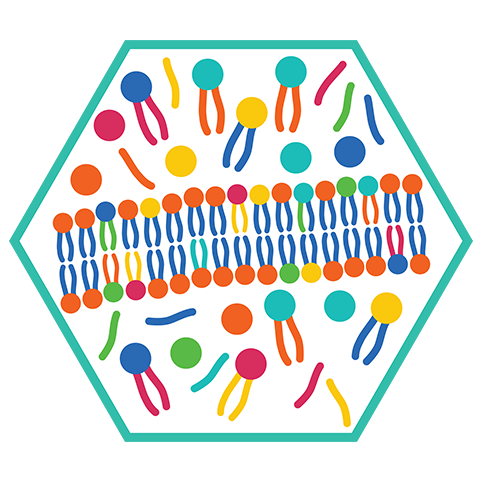
Organizers
Maria Fedorova, Dresden University of Technology
Neale D. Ridgway, Dalhousie University
Lipids may be most famous for their role in making membranes, but these captivating compounds do so much more. Hundreds of distinct lipid species are integral to signaling pathways involved in cell survival, differentiation, motility, immune response and countless other functions. This symposium celebrates all things lipid: Delve into how they’re made, how they degrade and how their many forms and functions keep cells ticking.
Cellular topology of lipid metabolism
Chair: Toni Petan
- Neale D. Ridgway, Dalhousie University
- Greg Fairn, Dalhousie University
- Shirin Bahmanyar, Yale University
- Miriam L. Greenberg, Wayne State University
Lipid quality control in cell survival and death
Chair: Neale D. Ridgway
- Michele Woelk, Dresden University of Technology
- Toni Petan, Jožef Stefan Institute
- James Olzmann, University of California, Berkeley
- G. Ekin Atilla–Gokcumen, University of Buffalo
Spatial lipidomics — tracing lipids in cells at molecular level
Chair: James Olzmann
- Arun Radhakrishnan, University of Texas Southwestern Medical Center
- André Nadler, Max Planck Institute of Molecular Cell Biology and Genetics
- Kandice Levental, University of Virginia
Theme song: “Fat Dance” by Red Hot Chilli Peppers
Maximizing Access Committee

Organizers
Sonia Flores, University of Colorado School of Medicine
Kayunta Johnson–Winters, University of Texas at Arlington
Karla Neugebauer, Yale School of Medicine
Jonathan Kelber, Baylor University
Ruma Banerjee, University of Michigan
Biochemistry and climate change
Chairs: Kayunta Johnson-Winters & Karla Neugebauer
Change is in the air, but it’s also in the chemistry. In this symposium, we’ll explore emerging insights into the molecular and cellular mechanisms that influence how living things respond to change. As climate changes alter temperature, salt, pH, nutrients and other conditions, biochemistry will be central to our ability to anticipate problems and imagine new solutions.
- Asiya Gusa, Duke University
- James A. DeMayo, University of Colorado-Denver
- Yixian Zheng, Carnegie Institution for Science
- Teresa Horton, Northwestern University
Cancer biology
Chair: Jonathan Kelber
What stresses a cancer cell? Join us and find out how cancer cells adapt to intrinsic and extrinsic stressors as they interact with their surroundings, grapple for nutrients and grow old. Cancer researchers, cell biologists and biochemists won’t want to miss this chance to scrutinize stress and consider how new findings could point to improved treatment strategies.
- Jonathan Kelber, Baylor University
- Elda Grabocka, Thomas Jefferson University
- Christina Towers, Salk Institute for Biological Studies
- Mark LaBarge, Beckman Research Institute of City of Hope
NIH and NSF perspectives on diversifying STEM
Sponsored by the ASBMB MOSAIC program
Chair: Ruma Banerjee
- Andrea Beckel–Mitchener, National Institute of Mental Health
- David Rockcliffe, National Science Foundation
- Ronen Marmorstein, University of Pennsylvania
Theme songs: "Imagine" by John Lennon & “Stressed Out” by A Tribe Called Quest
Membrane contact sites
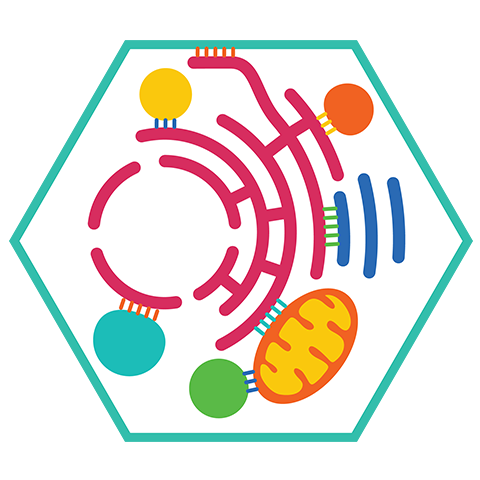
Organizers
Christopher T. Beh, Simon Fraser University
Jen Liou, University of Texas Southwestern Medical Center
Bond with your colleagues over membrane contacts! Tethering proteins that attach membranes within eukaryotic cells are the ultimate intracellular Velcro. Join us as we marvel at the myriad ways membrane contact sites affect cell growth — from protecting against stress, to fashioning clever structural elements, to regulating metabolism and cell signaling as conduits for lipid and metabolite exchange between membranes.
Regulation of lipid transfer and metabolism at membrane contact sites
Chair: Jen Liou
- Hongyuan Yang, University of Texas Health Science Center at Houston
- Jen Liou, University of Texas Southwestern Medical Center
- Alexandre Toulmay, University of Texas Southwestern Medical Center
- Arash Bashirullah, University of Wisconsin–Madison
Membrane signaling at membrane contact sites
Chair: Thomas Simmen
- Thomas Simmen, University of Alberta
- Jay Tan, University of Pittsburgh
- Alissa Weaver, Vanderbilt University
- Chi-Lun Chang, St. Jude Children's Research Hospital
Specialized membrane contact site functions
Chair: Christopher T. Beh
- Isabelle Derré, University of Virginia
- Aaron Neiman, Stony Brook University
- Raul Andino, University of California, San Francisco
- Christopher T. Beh, Simon Fraser University
Theme song: Dave Fenley cover of “Stuck on you” by Lionel Richie
Microbial signaling, communication and metabolism

Organizers
Peter Chien, University of Massachusetts Amherst
Jade Wang, University of Wisconsin–Madison
OMG, did you hear what Vibrio fischeri said about the bobtail party they were at last night? It positively glowed! This symposium will catch you up on the latest microbial gossip as we listen in on the small-molecule signals bacteria use to communicate with each other, decipher how microbial machines coordinate massively complex regulatory and responsive strategies, and untangle the vast webs of interactions and intrigue within members of microbial communities.
Signaling nucleotides in microbes
Chair: Jade Wang
- Vincent T. Lee, University of Maryland, College Park
- Ming Chen Hammond, University of Utah
- Emily E. Weinert, Pennsylvania State University
- Jade Wang, University of Wisconsin–Madison
Microbial machines
Chair: Peter Chien
- Peter Chien, University of Massachusetts Amherst
- Erin Goley, Johns Hopkins University
- Monica Guo, University of Washington
- Briana Burton, University of Wisconsin–Madison
Microbial communities
Chair: Erin Goley
- Stavroula Hatzios, Yale University
- John Whitney, McMaster University
- Christopher S. Hayes, University of California, Santa Barbara
- Ami S. Bhatt, Stanford University
Theme song: "We're spending most of lives living in a microbe’s paradise" (based on Coolio)
Mitochondria, peroxisomes and chloroplast metabolism
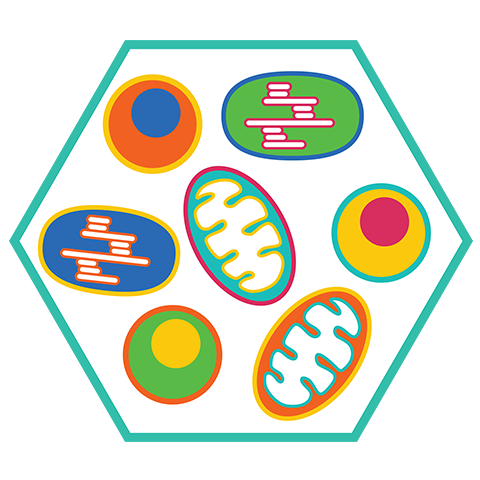
Organizers
Pere Puigserver, Dana–Farber Cancer Institute; Harvard Medical School
Greg Moorhead, University of Calgary
Who doesn’t love organelles? With their specialized biochemistry, architecture and metabolism, these cellular components each come with their own quirky personality. In this symposium, we’ll dish the latest deets on the metabolic pathways in mighty mitochondria, peppy peroxisomes and that fabulous green goddess, the chloroplast.
Peroxisome biogenesis/metabolism
Chair: Tom Rapoport
- Francesca Di Cara, Dalhousie University
- Brooke Gardner, University of California, Santa Barbara
- Tom Rapoport, Harvard Medical School; HHMI
- Irfan Lodhi, Washington University in St. Louis
Protein covalent modifications and chloroplast metabolism
Chair: Greg Moorhead
- Greg Moorhead, University of Calgary
- Glen Uhrig, University of Alberta
- R. Paul Jarvis, University of Oxford
- Paula Mulo, University of Turku
Mitochondria energetics/metabolism
Chair: Pere Puigserver
- Dave Pagliarini, Washington University School of Medicine
- Pere Puigserver, Dana–Farber Cancer Institute; Harvard Medical School
- Lena Pernas, Max Planck Institute for Biology of Ageing
- Rebecca Voorhees, California Institute of Technology
Theme song: “The Cell” by Gojira
New frontiers in structural biology

Organizers
Jose Rodriguez, University of California, Los Angeles
Hosea Nelson, California Institute of Technology
Emerging tools for illuminating the inner structures of molecules could soon make Superman’s X-ray vision seem like mere child’s play. In this symposium, we’ll zoom in on how the ability to see the position of individual atoms — or to predict structures with high enough accuracy to predict function — could unleash vast new opportunities to understand, build, target, and react molecules.
The rise of molecular assemblies
Chair: Rebecca Vorhees
- Sarah Shahmoradian, University of Texas Southwestern Medical Center
- Lorena Saelices, University of Texas Southwestern Medical Center
- Jose Rodriguez, University of California, Los Angeles
- Mark Witmer, Bristol Myers Squibb
New approaches enabling structural science
Chair: Jose Rodriguez
- Roger Castells–Graells, University of California, Los Angeles
- Hosea Nelson, California Institute of Technology
- Hong Zhou, University of California, Los Angeles
- Chengcheng Fan, California Institute of Technology
Seeing the chemistry of life
Chair: Hosea Nelson
- Lindsey R.F. Backman, Whitehead Institute for Biomedical Research
- Douglas Rees, California Institute of Technology
- Stephanie Ribet, Lawrence Berkeley National Library
- Zhen Chen, California Institute of Technology
Theme song: “Shine a Light” by The Rolling Stones
Redox and metals in biology

Organizers
Siavash Kurdistani, University of California, Los Angeles
Gina DeNicola, Moffitt Cancer Center
Cells walk a knife’s edge when it comes to oxidation and metals. Too little and proteins misfold or signals misfire. Too much triggers cell death. How do they keep the balance? This symposium calls all metalheads and redox biologists to get revved up about metal acquisition and dependencies, mechanisms of metal stress, and redox metabolism and vulnerabilities.
Advances in redox homeostasis in biology and disease
Chair: Urbain Weyemi
- Kivanç Birsoy, Rockefeller University
- Jessica Spinelli, University of Massachusetts Chan Medical School
- Urbain Weyemi, National Cancer Institute
- Elena Piskounova, Weill Cornell Medicine
Iron in redox biology: mechanisms and regulation
Chair: Gina DeNicola
- Adam Hughes, University of Utah
- James Wohlschlegel, University of California, Los Angeles
- Hongying Shen, Yale University
- Gina DeNicola, Moffitt Cancer Center
Copper in redox biology: From fundamental chemistry to cellular function
Chair: Siavash Kurdistani
- Katherine Franz, Duke University
- Peter Tsvetkov, Broad Institute of MIT and Harvard
- Deborah Fass, Weizmann Institute of Science
- Siavash Kurdistani, University of California, Los Angeles
Theme song: “Iron Man” by Black Sabbath
RNA biology
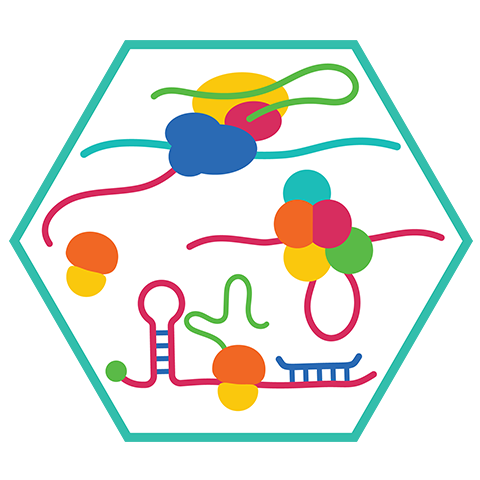
Organizers
Katrin Karbstein, UF Scripps Institute for Biomedical Innovation & Technology
Jeremy E. Wilusz, Baylor College of Medicine
RNA is at the heart of some of the trendiest recent developments such as COVID-19 vaccines, CRISPR and siRNAs — and it’s only just getting started. Get up to speed on the science behind the splashy headlines and find out why RNA is considered one of the most promising drug targets and platforms at this stimulating symposium. We’ll trace the RNA life cycle, probe how it’s translated into protein and find out how RNA regulation factors into neurodegenerative diseases and cancer.
RNA biogenesis and processing
Chair: Homa Ghalei
- Tracy L. Johnson, University of California, Los Angeles
- Hiten D. Madhani, University of California, San Francisco
- Jeremy E. Wilusz, Baylor College of Medicine
- Joshua T. Mendell, University of Texas Southwestern Medical Center
Ribosomes and translation
Chair: Katrin Karbstein
- Shu-ou Shan, California Institute of Technology
- Ruben L. Gonzalez, Columbia University
- Homa Ghalei, Emory University
- Amy S.Y. Lee, Dana–Farber Cancer Institute; Harvard Medical School
RNA and disease
Chair: Jeremy E. Wilusz
- Blake Wiedenheft, Montana State University
- Shuying Sun, Johns Hopkins University
- Olga Anczukow, Jackson Laboratory for Genomic Medicine
- Katrin Karbstein, UF Scripps Institute for Biomedical Innovation & Technology
Theme song: “Friend like me” from “Aladdin”
Signaling mechanisms in the nucleus

Organizers
Glen Liszczak, University of Texas Southwestern Medical Center
Aaron Johnson, University of Colorado Anschutz Medical Campus
The nucleus has long been revered as the control center of eukaryotic cells. But what exactly regulates the intricacies of what goes on in there, what happens when things go awry and how could new therapeutic approaches help right the ship? This symposium will keep you on the edge of your seat with gripping nuclear detective work, machines of extraordinary complexity and visually stunning landscapes as we focus a new lens on longstanding questions about organism development, cellular identity and the genetic basis for disease.
Chemical strategies to study nuclear processes
Chair: Aaron Johnson
- Anna Mapp, University of Michigan
- Glen Liszczak, University of Texas Southwestern Medical Center
- Oliver Bell, University of Southern California Keck School of Medicine
- Minkui Luo, Memorial Sloan Kettering Cancer Center
Chromatin organization, replication and repair
Chair: Katharine Diehl
- Vijay Ramani, Gladstone Institute
- Aaron Johnson, University of Colorado Anschutz Medical Campus
- Carl Wu, Johns Hopkins University
- Serena Sanulli, Stanford University
Chromatin modifications in the nucleus
Chair: Glen Liszczak
- Katharine Diehl, University of Utah
- Tim Stasevich, Colorado State University
- Phil Cole, Harvard University
Theme song: “Journey to the Island” by John Williams
ASBMB journals
Journal of Biological Chemistry symposium
Chair: Philip A. Cole, Harvard University
Since 1905, the JBC has stood as a leading outlet for scientists across disciplines to share mechanistic insights on the molecular and cellular basis of biological processes. Join JBC editors for a special symposium featuring the hottest topics at the forefront of the field today at this symposium chaired by JBC Associate Editor Phil Cole of Harvard University.
- Henrik G. Dohlman, University of North Carolina at Chapel Hill
- Brian D. Strahl, University of North Carolina at Chapel Hill
- Kirill Martemyanov, The Scripps Research Institute
The power and diversity of proteomics: A symposium by Molecular & Cellular Proteomics
Chair: Al Burlingame, University of California, San Francisco
Join us for a special symposium organized by MCP Editor-in-Chief Al Burlingame of the University of California, San Francisco, on current issues in the development and applications of proteomics in basic and translational research. Explore cutting-edge techniques being used to profile bacterial proteomes, map excitable domains in neurons, understand antigen presentation and disentangle complex cell hierarchies.
- Miriam Abele, Technical University of Munich
- Matthew Rasband, Baylor College of Medicine
- Jennifer G. Abelin, Broad Institute of MIT and Harvard
- Erwin Schoof, Technical University of Denmark
Lipidomics: A symposium by the Journal of Lipid Research
Chair: Xianlin Han
JLR Associate Editor Xianlin Han of the University of Texas Health Science Center at San Antonio will chair a symposium on lipidomics as a bridge to biological and medical research. Hear from five leading experts at the forefront of genomics, proteomics and lipidomics as they relate lipid metabolism and function to insights in cardiometabolic diseases, Alzheimer’s and more.
- Peter Meikle, Baker Heart and Diabetes Institute
- Yu Xia, Tsinghua University
- David A. Ford, Saint Louis University Health Science Center
- Kim Ekroos, Lipidomics Consulting Ltd.
- Xianlin Han, University of Texas Health Science Center
